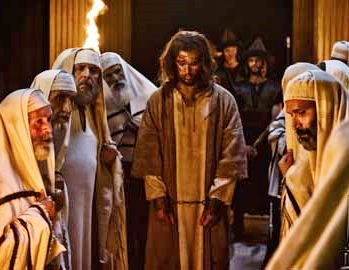A Glorious Vision
“You have already become satiated? You have already become
rich? Without us, you are kings?” I Corinthians 4:8
Like every other middle manager in the world, the pastor has
his dreams. The average pastor spends
his day torn between ennui and overexcitement, a tug of war between the
internal war of knowing what to preach and keeping certain parishioners off of
each other’s throats. But in a pastor’s
careless moments he might reflect on what his ideal ministry would be, what
some church leaders might have already achieved in his lifetime:
- Thousands in the congregation, thirsting after his wisdom.
- A large building, a modern cathedral with stained glass and exalted spires.
- Programs seven days a week, meeting all kinds of needs from 12 Step meetings to
singles outings.
- A large paid staff.
- Bible studies every day for different social categories.
- Leading regular retreats for a variety of Christian groups.
- A counselling center advising spiritual life direction at reasonable fees.
- Meetings with the mayor… and perhaps even the governor!... giving counsel on political
matters that relate to their constituents’ spiritual health.
- Leading groups of local churches in important matters such as pornography or
international persecution of the church.
This lowly pastor can see every Sunday, after worship led by a local conductor,
he embarks on a verbal journey through the chosen text that week, which he has studied
for almost twenty hours this last week. His
elocution and scholarship is praised and hundreds are moved to follow Christ in
a deeper and more profound way than they had ever experienced due to his
homiletic skill.
A pastor dreams of this, for this is what is called
spiritual success in our society. Mind you, few pastors reach this lofty
vision, even as few local basketball stars achieve playing in the NBA, but it
is still the standard to which every pastor reaches. And the local pastor is frustrated at his
lack of talent, his lack of organization and, especially, his lack of
fund-raising ability to obtain such lofty goals.
It is fascinating to watch what a society, or a segment of a
society, calls success, because that determines the everyday goals of those who
attempt to achieve that success, whether they have the skills or resources to
obtain that particular definition of success.
What is “normal” for a person is determined by how far they miss their
ultimate goals. Some might think they
could be president, but they might be satisfied with being on a school board or
a state senator. Some might think that
they could be a Corporate Executive Officer, but they are content with being an
office manager. But none of these would
be content with being a fast-food worker on minimum wage, because their
definition of “success” finds that this occupation is too far from their lofty
goals.
Even so, in the church, there is no honor in being a poor congregation. Not when the goal is to be a mega-church with
thousands of congregants and a huge budget.
According to that definition of success, the house church with an unpaid
pastor is a failure. If they move from
this model to another model with a budget or building, that’s wonderful,
because it means that it is becoming a “real church”. There are some denominations that will not
call a congregation a member of their denomination until it has a building and
enough money to pay for a leader.
Looking at the Gospels
If our goals determine what our measure of being normative
is, then perhaps rather than looking at Christianity’s view of success, we
should look toward Jesus and the apostles to determine our goals. If we were going to look at the New
Testament’s expectations of churches in general, this would be a very long
text. Instead, I would like to look at
the social expectations of the normative congregation. How is the church expected to compare to
society at large on an economic and class level?
The writers of the gospels all had one goal: to communicate
Jesus to their groups. Matthew probably
wrote to an early Antiochian Jewish Christian group. Mark probably wrote to a mixed Jew and
Gentile Christian group. Luke wrote to a
Roman and Greek Christian audience. John
probably wrote to a group of Greek and Jewish Christians.
But they all used a base of sayings and narratives that all
the church used to communicate Jesus’ life, mission and teachings to all
peoples. Although the books we have were
written after some of the other writings of the New Testament, the foundational
words and stories were from earlier, and they are the best representations of
the person of Jesus that we have today.
These evangelists were trying to communicate Jesus, just Jesus, with the
only resources they had. They were not
communicating a version of Jesus, but rather the only Jesus they knew, the only
Jesus they loved and committed themselves to.
A Collection of
Insurgents
"If anyone wishes
to come after Me, he must deny himself, and take up his cross and follow Me.”
Mark 8:334
Jesus is speaking to his disciples, but especially to those
who were considering to be his disciples.
Jesus’ method of proselytizing is unique in that he more clearly
expresses the most difficult requirements of joining his group, instead of the
benefits. The benefits were clear to
anyone who spent an afternoon with Jesus: healing and the ability to heal;
wisdom and an education that was greater than the teachers of their day (Luke
7:20-23). So Jesus emphasized the
difficulty of obtaining a place in his school, and so the kingdom of God.
The requirement of “coming after,” or following, Jesus that
is most shocking is to “take up his cross.”
The cross was not just a symbol of the death penalty, which today is
used almost exclusively on murderers.
The Jews never crucified, but when the Romans used a cross, it wasn’t on
common criminals, such as simple murderers or thieves (as many mistranslations
of the gospels might indicate). The
cross was reserved for those who were the enemy of the state, those who planned
the overthrow of the state or who acted against the rightful government or
against society at large. Alexander
might crucify 2000 citizens of Tyre who defended their city against him because
he saw himself as their rightful ruler.
It was exclusively used of non-citizens who attempted to undermine the
proper order of society. Slaves were
crucified for running away because they were teaching other slaves to forsake
their proper role.
Jesus is commanding all of his school to take up the mantle
of the insurgent, the one who undermines the state. Yet, at the same time, he implies that this
insurgence will be unsuccessful, because they take up a cross, not a crown. The
normative Christian is an insurgent who is caught and punished.
A School of
Persecuted Paupers
“Blessed are you who
are poor, for yours is the kingdom of God. Blessed are you who hunger now, for
you shall be satisfied. Blessed are you who weep now, for you shall laugh.
Blessed are you when men hate you, and ostracize you, and insult you, and scorn
your name as evil, for the sake of the Son of Man. Be glad in that day and leap
for joy, for behold, your reward is great in heaven. For in the same way their
fathers used to treat the prophets. But woe to you who are rich, for you are
receiving your comfort in full. Woe to you who are well-fed now, for you shall
be hungry. Woe to you who laugh now, for you shall mourn and weep. Woe to you
when all men speak well of you, for their fathers used to treat the false
prophets in the same way.” Luke 6:20-26
Jesus is speaking to specifically to his disciples, who have
already accepted Jesus’ call to repentance. Now he divides his congregation
between the rich and the poor, the comfortable and the oppressed, claiming that
the former will not obtain the ultimate blessings, while the poor among them receives
all that He has promised.
The Lucan version of the beatitudes is less familiar to us
than the version in Matthew which begins “Blessed are the poor in spirit”, for
the Matthew account, it seems to some teachers, has eyes of the needle to allow
the wealthy and important into Jesus’ blessings. However “poor in spirit” refers to Proverbs
16:19, which commends those who lower themselves with the “anawim” poor, rather
than being “haughty” and ambitious for social achievement.
It is certain, however, that Jesus expects his disciples to
be of a lower economic status, for even the wealthy among them would be
expected to surrender their possessions (Luke 12:33, Luke 14:33).
But the primary economic and status loss occurs not from
personal surrender, but from attacks from the outside. The heart of Jesus’ congregation, those who
receive the promises, are those who are declared outcast. Some of the attacks might be mild (insults),
but some would be severe (hatred).
Not all of Jesus’ congregation would be outcast from
mainstream society, but all of those who truly receives the reward of God would
experience this and live in this. The
normative disciple is poor and outcast.
Being Like Jesus
"If the world
hates you, you know that it has hated Me before it hated you. If you were of
the world, the world would love its own; but because you are not of the world,
but I chose you out of the world, because of this the world hates you. Remember
the word that I said to you, 'A slave is not greater than his master.' If they
persecuted Me, they will also persecute you; if they kept My word, they will
keep yours also.” –John 15:18-20
John 14-16 is a discussion between Jesus and the twelve
about the nature of a life of following Jesus without Jesus being physically
present. Many principles of faith and
love are explained, which are not only for the twelve, but for the totality of
those who follow Jesus.
The basic principle Jesus is drawing from is that a “slave
is not greater than his master”, or, as this idea is communicated in Matthew, A
disciple is not above his teacher, nor a slave above his master. It is enough
for the disciple that he become like his teacher, and the slave like his
master.” (Matthew 10:24-25). The one
submitted fully represents his authority by being like his authority. Since Jesus was rejected, hated and
persecuted, those who are under him would experience the same.
It is interesting that throughout the history of the church,
the typical understanding of imitation of Jesus is ethical: being loving or
pure. But in the New Testament, the
almost exclusive understanding of being like Jesus is that of lowliness,
vulnerability and rejection. This
passage is no exception. The normative
follower of Jesus is hated and rejected by mainstream society.
The Tough Choice
“Everyone who
confesses Me before men, I will also confess him before My Father who is in
heaven. But whoever denies Me before men, I will also deny him before My Father
who is in heaven. Do not think that I came to bring peace on the earth; I did
not come to bring peace, but a sword. For I came to SET A MAN AGAINST HIS
FATHER, AND A DAUGHTER AGAINST HER MOTHER, AND A DAUGHTER-IN-LAW AGAINST HER
MOTHER-IN-LAW; and A MAN'S ENEMIES WILL BE THE MEMBERS OF HIS HOUSEHOLD. He who
loves father or mother more than Me is not worthy of Me; and he who loves son
or daughter more than Me is not worthy of Me.” –Matthew 10:32-37
In Matthew 10, Jesus prepares his itinerant apostles to
expect persecution and arrests.
Beginning in verse 32, he broadens out his statements to be not only
those who are travelling evangelists, but all who is a disciples of Jesus.
Not every follower of Jesus is required to evangelize, but
all must be ready to confess Jesus’ name, and this is dangerous business. Jesus’
name and teaching is associated with division and those who stand with Jesus
must be ready to accept the consequences. The “sword” Jesus speaks of is not a
sword of violence but is a tool of division, that spurs hatred, anger and
separation, as his quote of Micah 7:6 indicates. At the name and teaching of Jesus, the
closest-knit families will be divided and those who loved will become the
bitterest of enemies.
At this point, the follower of Jesus must make a decision
between remaining with Jesus, or remaining with their family. And those who choose family who hates the
name and promises of Jesus will also reject the kingdom Jesus offers. The normative Christian will be divided from
those closest to them.
A Conclusion to the Matter
The normative church isn’t the megachurch, and the normative
pastor isn’t the charismatic, popular pastor.
Rather, the standard for church growth, according to Jesus, is
persecution and oppression. Not that
everyone in the church must be oppressed, but that as a group, oppression is
felt and community is built because of the outside pressure.



























